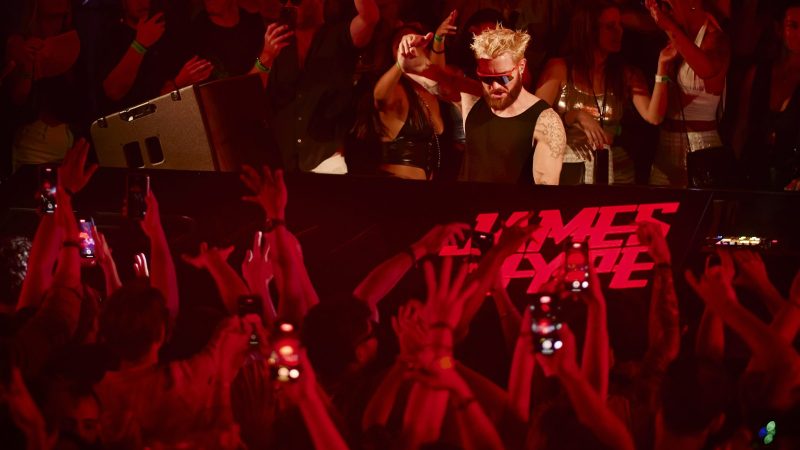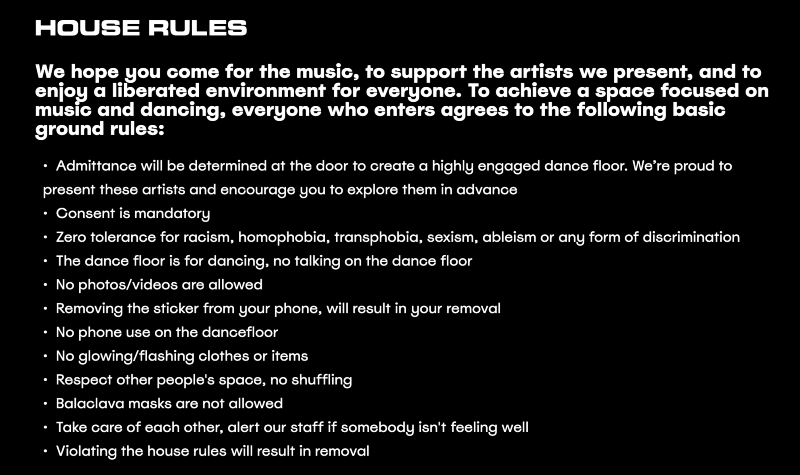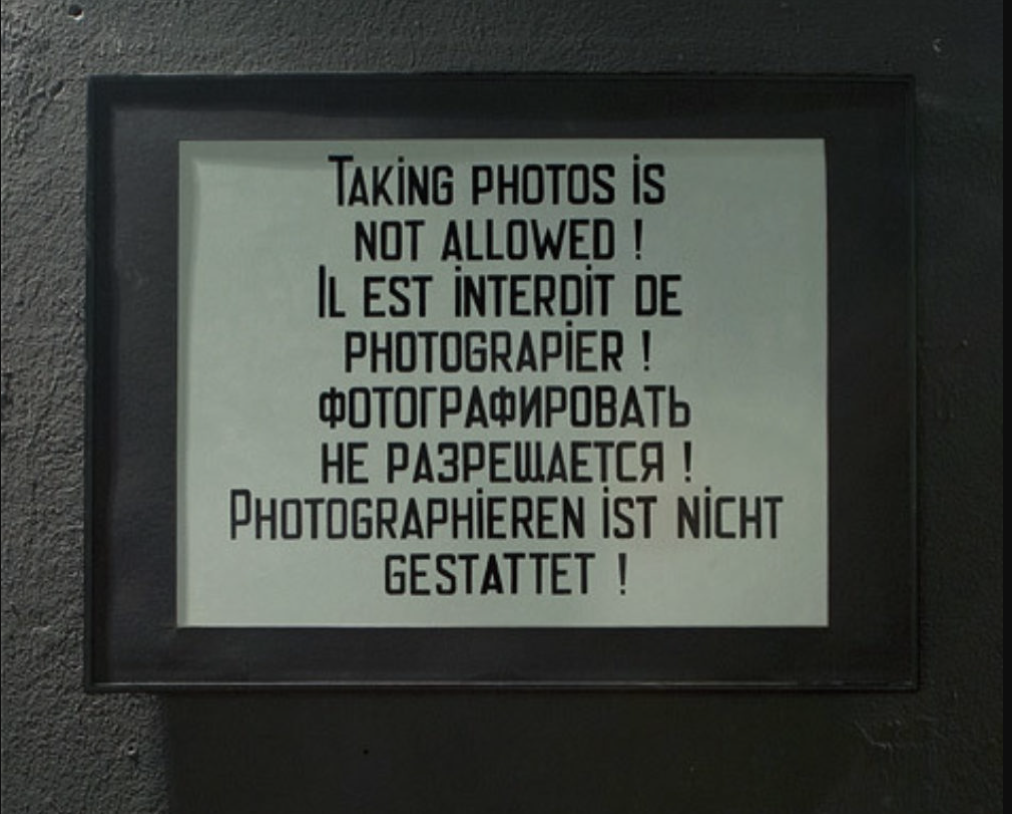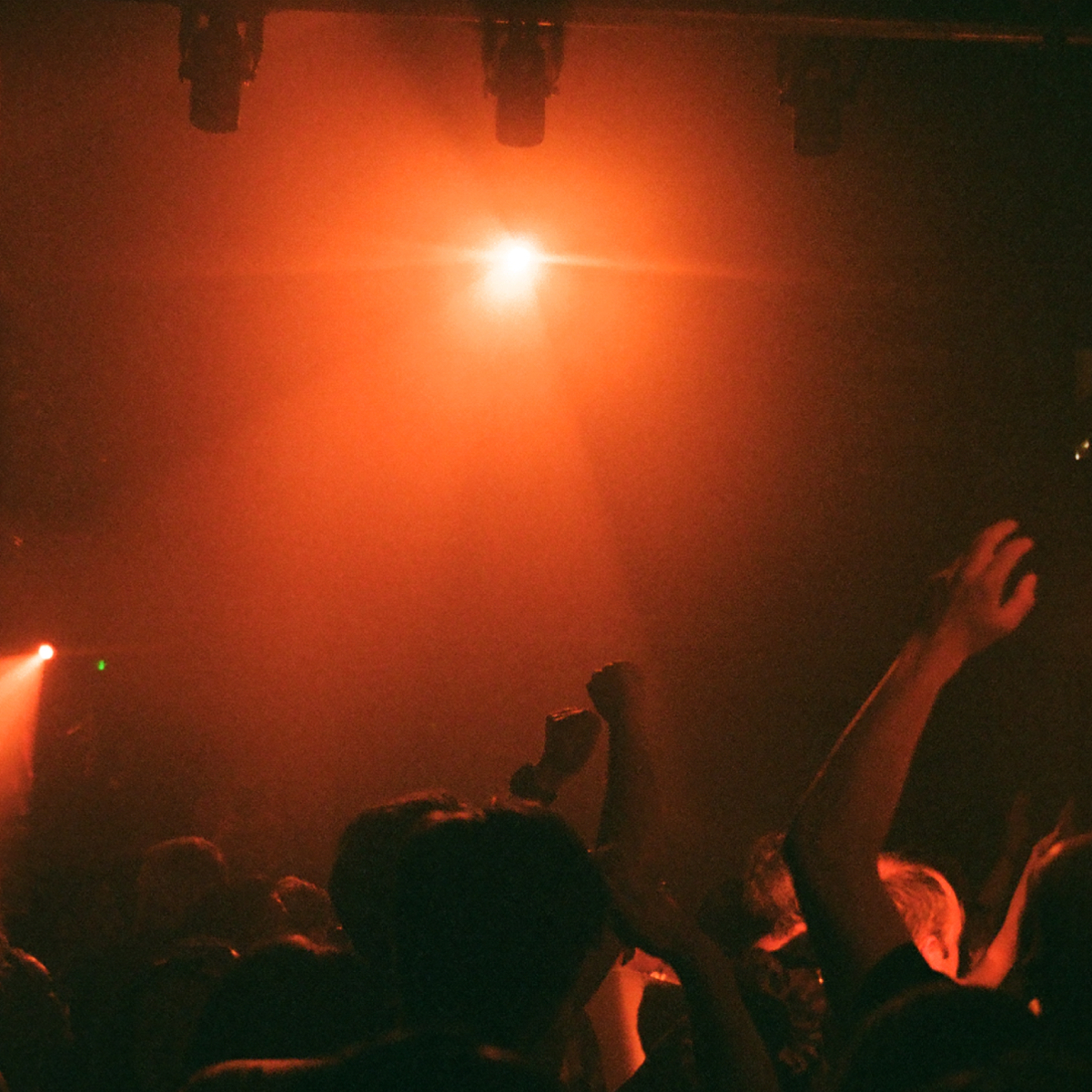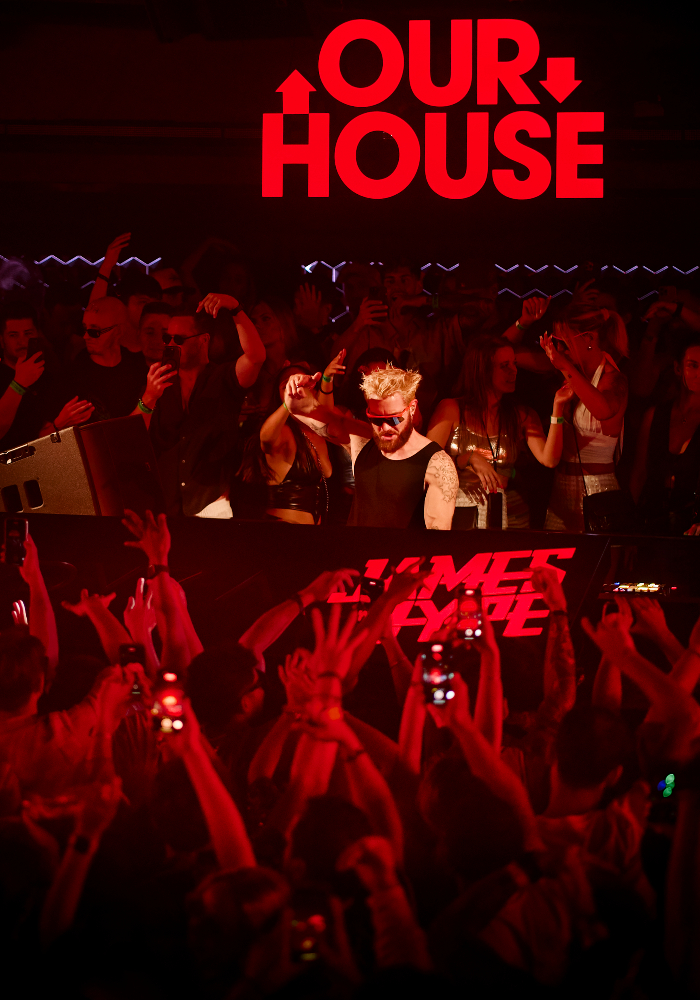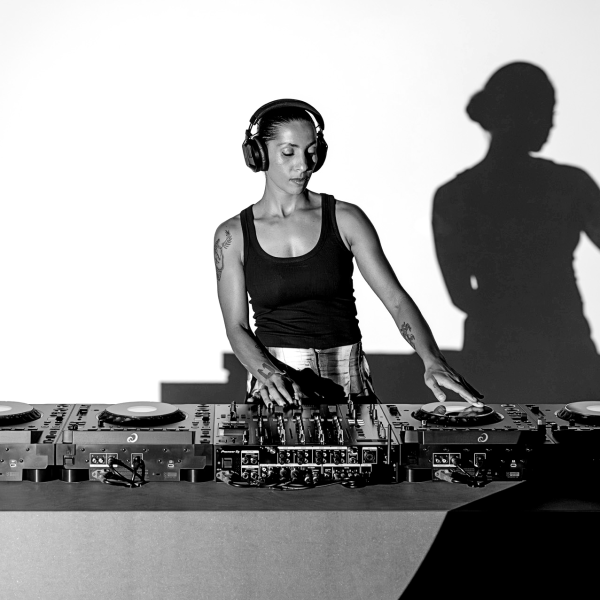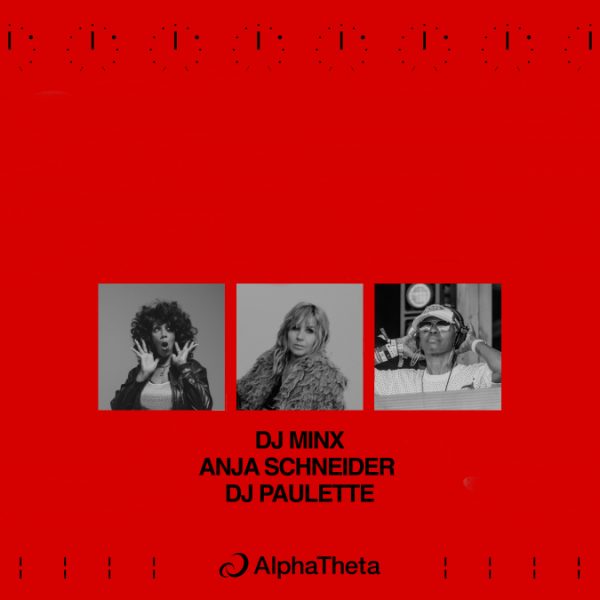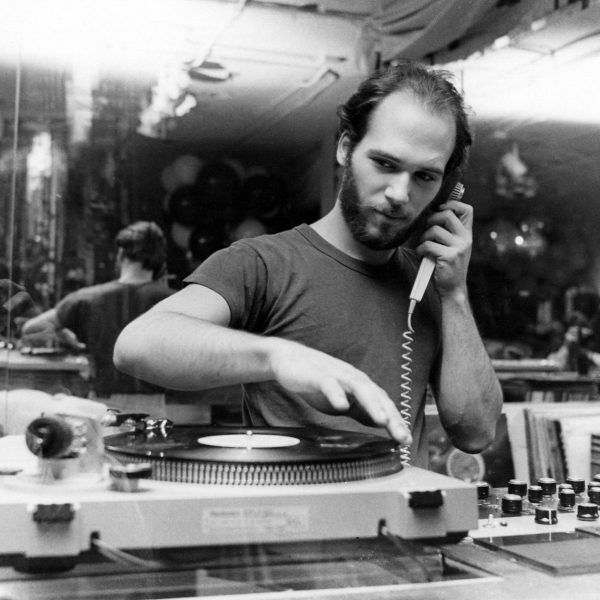What’s the future of phones on the dance floor?
While there’s no universal phone policy that suits everyone across the globe, what the clubs, promoters, industry figures and DJs we spoke to have in common is that they think a phone-free dance floor largely improves a club’s atmosphere and also protects people’s privacy. These policies tend to reflect why we should go out to clubs in the first place: for enjoyment and connection, with people engaged in the music being played.
But what about the future? If we are talking about a trend, where might it be headed?
It’s very likely that phones will still crop up and even dominate some—but not all—dance floors and festivals worldwide, but it will depend on the club and/or the promoter running the event. For example, attending most super clubs in Ibiza, you would expect to see a sea of phones filming the DJ. It can be annoying, but it will come with the territory.
At less mainstream clubs or events, however, the expectation could be that people are much less likely to be filming. You may have a sticker put on your phone camera, or there’ll be signs on the walls. Like we see at many events in Berlin, the crowd may “self-police” itself, reminding each other to adhere to the policy. In such situations, the whole clubbing experience is often much better—more engagement with the music, more immersion in the atmosphere, more appreciation of the venue’s production. Overall, everything feels less like an episode of Black Mirror.
When it comes to privacy, I personally know that if I go to a queer party, no one is going to be taking photos or filming, except for a professional photographer who may be working on the night and has a very clear brief from the promoter (like the queer parties Honeypot and Technomate, who work with trusted photographers). I think the lack of phones on the dancefloor at queer parties stems from a mutual respect the punters have for one another (and the DJ); this is different from a party with a straight audience, where I feel there is often less respect for each other, whether it’s privacy, personal space, wellbeing etc.
It’s been difficult to avoid DJs expressing frustration online about the impact of phones on the dance floor, and this will no doubt continue. Perhaps DJs, like James Hype and Damian Lazarus, are hoping to create a social stigma around phone usage? There’s a great deal of audience support for most of these social posts, especially among the older generation of clubbers, who remember dance floors before phones. But if a majority of people online appear to support phone bans, why do we still see so many people filming? Perhaps there’s a gap between what people say online and what they do in reality?
This ties in with the idea that the club space almost exists in two ways simultaneously: IRL and via social media. There’s the actual experience of clubbing—loud music, lights, bodies, alcohol, and whatnot; then there are the clips of that experience online. We get snippets of DJs, their style of music, the kind of crowd that attended the party, and what the general vibe was—all packaged in a 60-second Instagram story or reel, or a TikTok video. Is it possible that these videos are actually having the opposite of their intended effect, and people, satisfied with getting a taste of clubbing at home, are subsequently going out less? This development is more likely to stem from the cost of living crisis, but it’s an interesting idea to consider.
The need for DJs to promote themselves through club videos is among the most difficult points of this debate. On the one hand, the current social media-driven market means that they need the exposure; on the other hand, they want the audience to be immersed in the music. For up-and-coming artists, videos of them playing in a packed room and holding the audience in the proverbial palm of their hand can be invaluable—it could help them land more bookings, grow their following (both online and IRL) and maybe even land a booking agent. But by the same token, it’s likely that an artist of this status would be playing at exactly the type of parties that will be aiming to move away from phones on the dance floor.
We should also acknowledge that there are large sections of the club/festival-going population who have never experienced a dance floor without people filming, particularly those who started going to clubs for the first time post-pandemic. For some people in this cohort, especially the TikTok generation, filming and taking photos is part of their daily lives. Remembering this fact might help older club goers to view these behaviors in a more generous light.
It may also be worth remembering that global club and DJ culture is a vast, sprawling entity with no center and no fixed views on things among its followers. Of course, people have different values and preferences when it comes to going out and using their phones on the dance floor, so perhaps it’s about finding the place or promoter that best represents your values. These days, that place might end up being a 5000-capacity club in Ibiza, or the most notoriously selective venue in Berlin.

